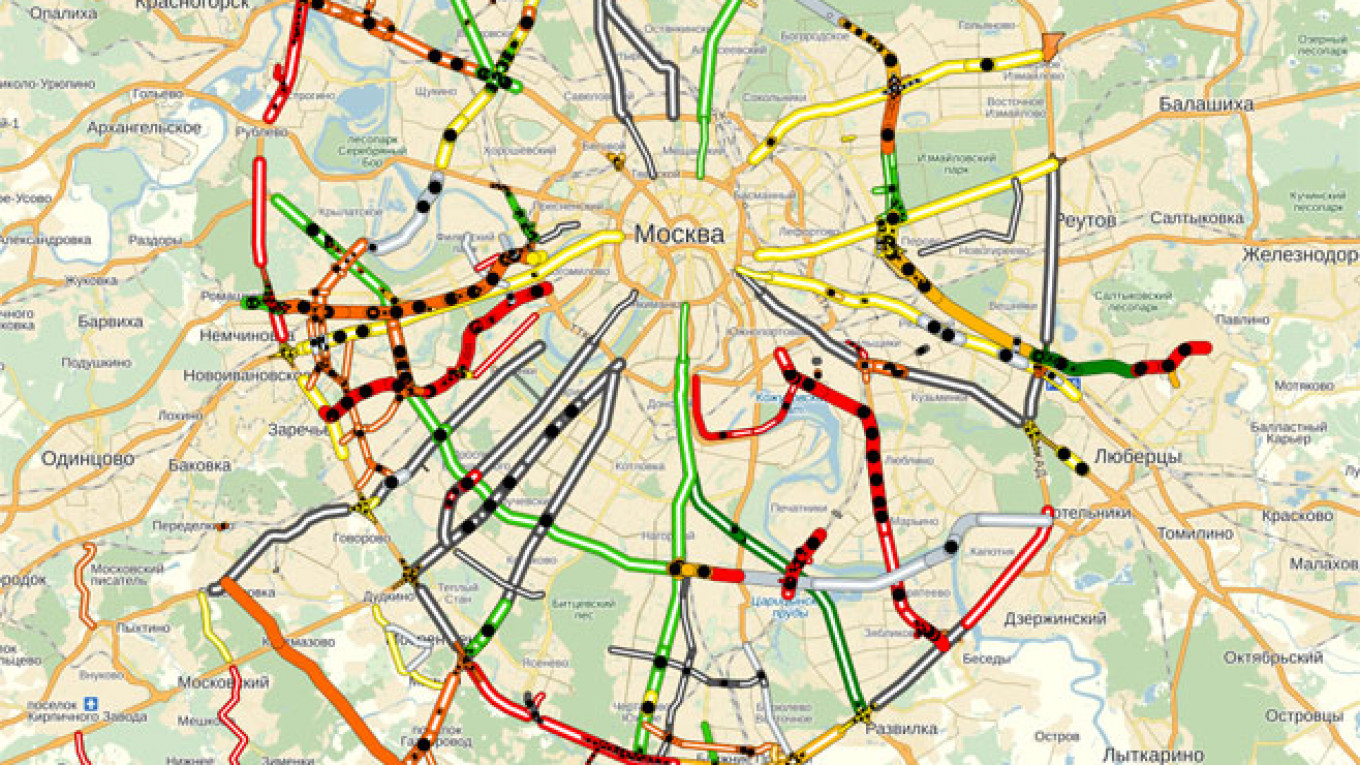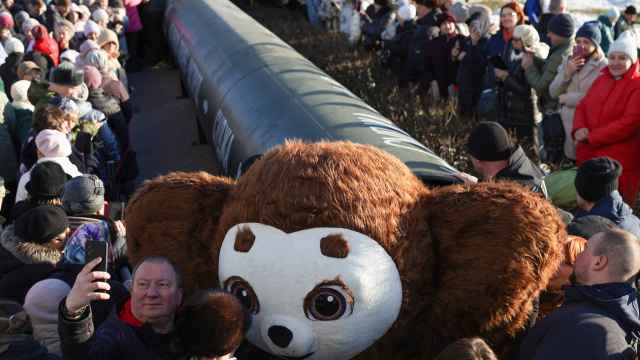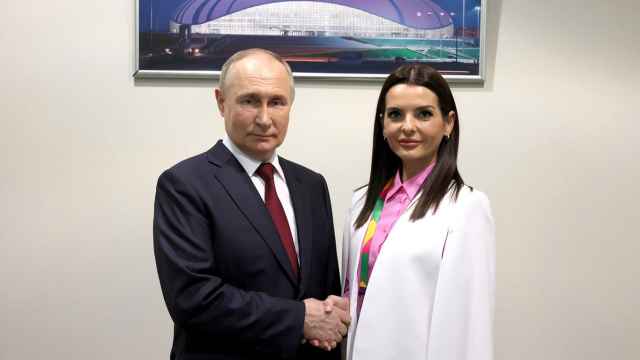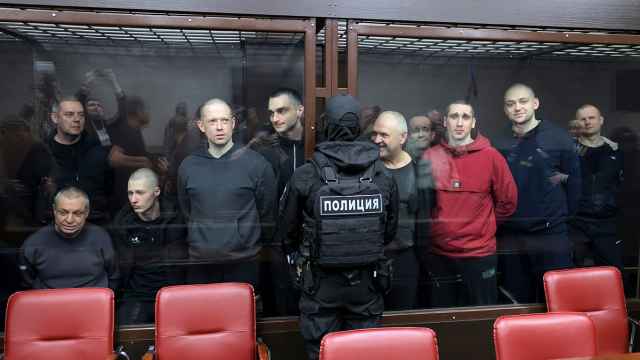Download the higher-resolution map here.
Constant changes and ambiguous names make the unprecedented road construction program in Moscow understandable only to transportation professionals and hardcore enthusiasts.
An interactive map of ongoing, planned and suspended road building projects in Moscow, prepared by an independent analytical center Probok.net and published last week, is a heroic attempt to help navigate current and future havoc.
With no support from City Hall, it took the group of traffic jam experts four months to collect open-source information and to do the interactive map layout.
"The authorities do have a road building strategy but at times it is unclear why, for instance, a particular tunnel is being built, with what future road it will connect and what are other planned roads in the area," said Andrei Moukhortikov, the head of the analytical team at Probok.net.
"We tried to create a map that would be understandable to a majority of people and not just for transportation experts," he added.
He outlined five major areas city road construction plans are targeting.
One is reconstruction of existing major roads. Some of them have already been modernized, like Leningradskoye, Varshavskoye and Yaroslavskoye Shosse. Others, like Shosse Entusiastov, are still in the works.
According to the City Hall investment program until 2016, more than 80 billion rubles ($2.2 billion) are required to modernize the major roads, with 23 billion rubles scheduled to be spent over the next three years.
Another gigantic — and costly — project is the construction of four "khorda," or bisecting roads, northwest, north, east and southwest of the Third Transportation Ring.
"If joined, they may visually resemble a fourth ring but in reality they are not," Moukhortikov said. "Their purpose is not to keep traffic running in circles but rather to divert vehicles away from the center to the outskirts, which tactically is the right approach."
Costing a total 140 billion rubles, the northwestern bisecting road is now under construction. A part of the southwestern bisecting road is complete and construction of others is being considered.
The third priority of the authorities is building local junctions in outlying districts.
"While major road reconstruction and the building of bisecting roads have been met with strong resistance from local residents, no one is against junctions that will link adjoining districts which suffer from a lack of connectivity," Moukhortikov said.
Another large project is the construction of improved intersections with the Moscow Ring Road, or MKAD. Limited throughput of current exit and access ramps cause congestion on the beltway itself, the analyst said.
More than 43 billion rubles are required to modernize MKAD junctions, and almost 32 billion out of this sum will be spent by 2016.
The fifth priority for city authorities is building road infrastructure on the regional territory ceded to Moscow in July of 2012. Moscow grew southwest with a new territory that is 1 1/2 times bigger than what it had before. At the same time the problems of poor interconnectivity outside the MKAD resemble the ones inside.
Over the next three years City Hall plans to spend more than 250 billion rubles on major road construction work inside the MKAD. About 272 billion rubles will be allocated to build roads in the new territories.
The map can be viewed in Russian at probok.net/download/map
Contact the author at a.panin@imedia.ru
A Message from The Moscow Times:
Dear readers,
We are facing unprecedented challenges. Russia's Prosecutor General's Office has designated The Moscow Times as an "undesirable" organization, criminalizing our work and putting our staff at risk of prosecution. This follows our earlier unjust labeling as a "foreign agent."
These actions are direct attempts to silence independent journalism in Russia. The authorities claim our work "discredits the decisions of the Russian leadership." We see things differently: we strive to provide accurate, unbiased reporting on Russia.
We, the journalists of The Moscow Times, refuse to be silenced. But to continue our work, we need your help.
Your support, no matter how small, makes a world of difference. If you can, please support us monthly starting from just $2. It's quick to set up, and every contribution makes a significant impact.
By supporting The Moscow Times, you're defending open, independent journalism in the face of repression. Thank you for standing with us.
Remind me later.






